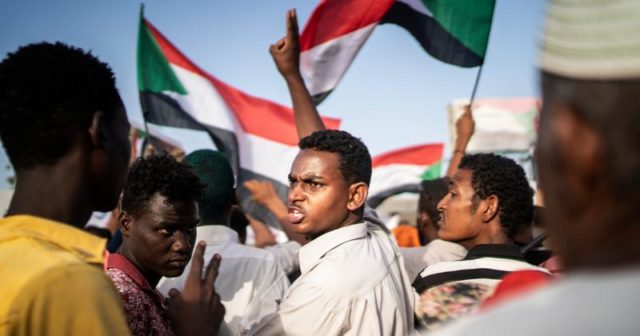Nathan Gardels is the editor-in-chief of Noema Magazine. He is also the co-founder of and a senior adviser to the Berggruen Institute.
Back in the 1990s, Mahmoud Hussein insightfully analyzed why, in modern times, the idea of democratic citizenship was never able to take hold in the majority-Muslim countries of the northern part of Africa. First it was because of colonial oppression, then because of strongman “fathers” like Egypt’s Gamal Abdel Nasser, who followed the post-colonial path of secular Arab nationalism, and then because of “God” — the rise of Islamist movements and rulers who sought in the wake of nationalism’s failure to return to cultural and religious roots, including sharia law, as a way to unify society.
In the case of Egypt, the corrupt autocracy of Hosni Mubarak hung on until the Arab Spring of 2011, then briefly turned to the rule of the Muslim Brotherhood and back again to the secular autocratic regime of President Abdel Fatah al-Sissi. In the case of neighboring Sudan, an Islamist strongman, Omar al-Bashir, came to power in 1989 and ruled for the last 30 years until he was forced out of power last month by a popular uprising that is being called the Nile Spring.
The cleric behind the throne at the outset of al-Bashir’s reign was the late Hassan al-Turabi, who in those days was known as “the new Khomeini” for promoting what he called “the second awakening of Islam.” Among his early apostles was Osama bin Laden, who lived for a while in Sudan under al-Turabi’s auspices.
As al-Turabi told me in an interview in Khartoum in 1994, “I merely represent a new, mature wave of Islamic awakening. … As first evidenced in the Iranian revolution, this awakening is comprehensive — it is not just about individual piety; it is not just intellectual or cultural, nor is it just political. It is all of these, a comprehensive reconstruction of society from top to bottom.” What was new about this awakening, he told me, is that it was being joined by the modern sector — elites in the government, the professions and military who were defecting from the old secular order.
“This widespread Islamic revival has been given impetus by the vacuum left by bankrupt nationalism, especially Arab nationalism, and African socialism,” he argued. “The post-colonial nationalist regimes had no agenda but to throw out the imperialists. Once they achieved their goal, they had nothing to offer to people. Then they turned to socialism as an alternative to the imperial West. Now, like everyone else, the Islamic world is disillusioned with socialism.”
Fast forward 30 years. At last, the embryo of citizenship is quickening in the womb of disillusion with the second awakening of Islam presided over for so long by the brutal and genocidal regime of al-Bashir. Once again, the modern sector is defecting, this time in a revolt led by the doctors, lawyers, teachers and engineers — many of them women — of the Sudanese Professional Association. While the populists of the West “have had enough of experts,” in prominent Brexiteer Michael Gove’s infamous phrase, among the key demands of the uprising in Sudan is bringing competence to a woefully corrupt and mismanaged government.
The military, which withdrew its support from al-Bashir and forced him to step down, has so far refused to challenge the uprising. Its leaders promise to form a civilian-military technocratic government in the interim before elections within four years.
The impetus for change now — the failure of the second awakening of Islam — is the opposite of the secular failure that led to the rise of al-Turabi and al-Bashir three decades ago. The momentum has gone out of that movement, marginalized in its last desperate gasps that still writhe in periodic acts of terror by its most radical edge, such as in the recent attack in Sri Lanka.
The next turn of history in Sudan and elsewhere in North Africa is uncertain. While the Islamic identity of society will remain, the hope is that an enraged and engaged public will, for the first time, be able to shape the destiny of their nation as citizens with rights and access to power instead of as subjects of imperial oppression, strongman rule or Islamist social engineering.





